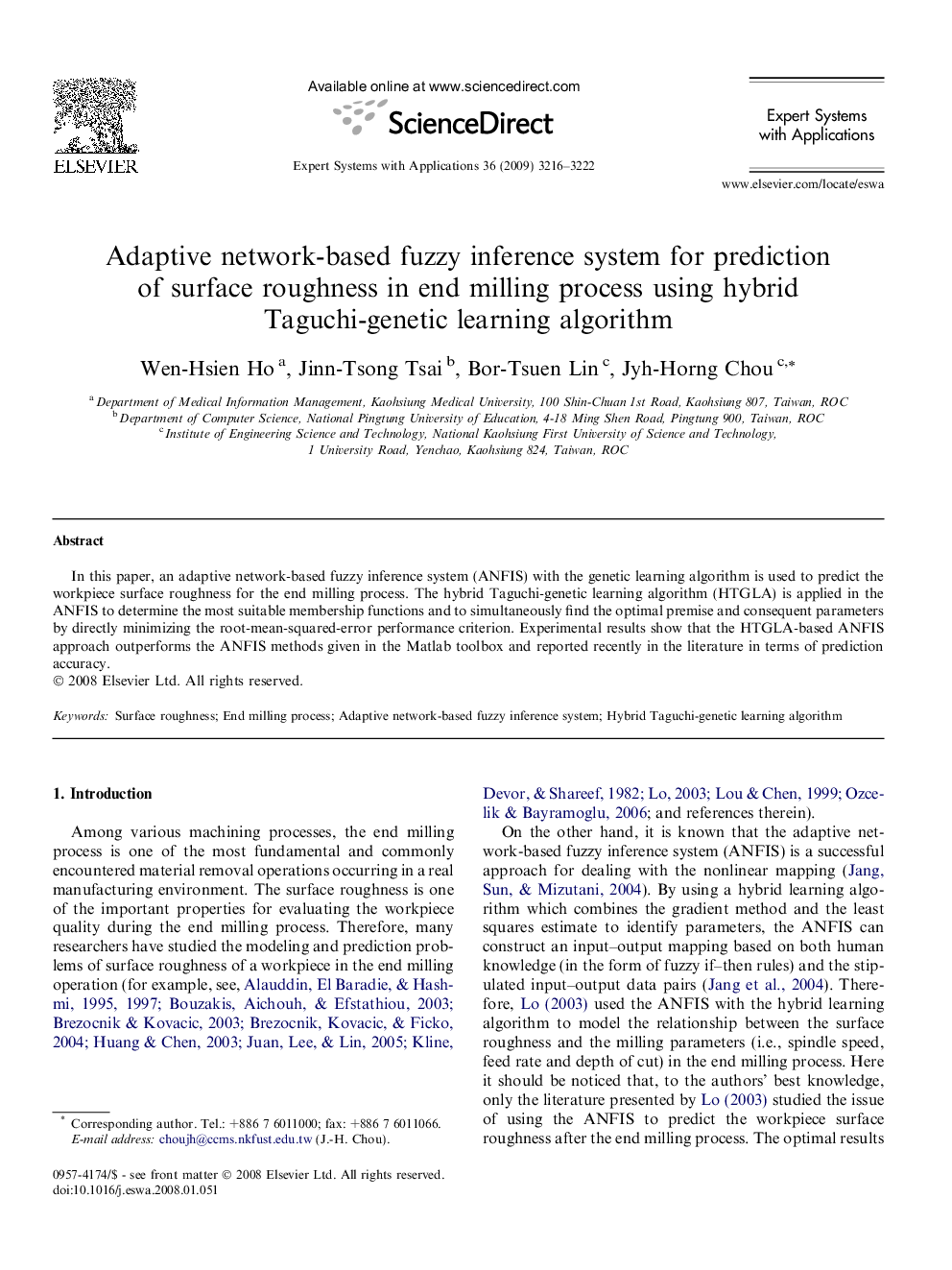| Article ID | Journal | Published Year | Pages | File Type |
|---|---|---|---|---|
| 388214 | Expert Systems with Applications | 2009 | 7 Pages |
Abstract
In this paper, an adaptive network-based fuzzy inference system (ANFIS) with the genetic learning algorithm is used to predict the workpiece surface roughness for the end milling process. The hybrid Taguchi-genetic learning algorithm (HTGLA) is applied in the ANFIS to determine the most suitable membership functions and to simultaneously find the optimal premise and consequent parameters by directly minimizing the root-mean-squared-error performance criterion. Experimental results show that the HTGLA-based ANFIS approach outperforms the ANFIS methods given in the Matlab toolbox and reported recently in the literature in terms of prediction accuracy.
Related Topics
Physical Sciences and Engineering
Computer Science
Artificial Intelligence
Authors
Wen-Hsien Ho, Jinn-Tsong Tsai, Bor-Tsuen Lin, Jyh-Horng Chou,
